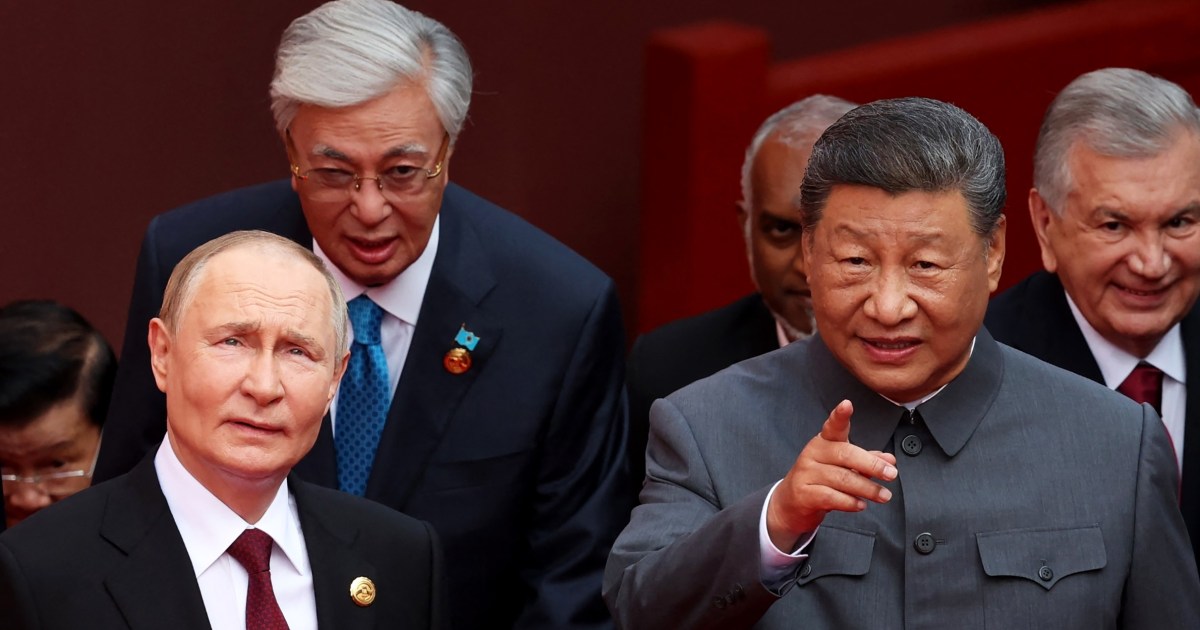World
Xi and Putin Discuss Longevity and Organ Transplants at Military Parade

HONG KONG — During a significant military parade in Beijing, Chinese President Xi Jinping and Russian President Vladimir Putin engaged in a conversation about life expectancy and advances in biotechnology. This dialogue, caught on a hot mic, occurred as both leaders, alongside North Korean leader Kim Jong Un, attended the event celebrating the 80th anniversary of the end of World War II on September 3, 2025.
As the three leaders took their places at the Tiananmen Square rostrum, a live feed from state-run broadcaster CCTV captured the exchange. Xi’s translator relayed his comments about how people now consider age 70 to be relatively young. “Now they say that at 70 you are only a child,” the translator was heard telling Putin. The Russian leader’s translator then responded in Mandarin, discussing the future potential for organ transplants and the prospect of living longer lives, even suggesting the possibility of achieving immortality.
Xi, who was momentarily off-camera, echoed these sentiments, stating, “Some have predicted that by the end of this century, humans could potentially live up to 150 years.” This conversation is particularly noteworthy given both leaders’ interests in maintaining their political power. Xi has held the presidency since 2013 and secured a rare third term in 2023 after removing the two-term limit from the constitution. Meanwhile, Putin has been a dominant figure in Russian politics since 2000, potentially remaining in power until 2036 following a controversial constitutional amendment.
Health and Longevity: A Shared Interest
Putin has publicly expressed a longstanding interest in health and longevity. In 2022, he advocated for the establishment of an anti-aging research center called “New Health Preservation Technologies.” This initiative aligns with his belief that the nation should focus on enhancing the health of its citizens. In contrast, while Xi does not seem to share the same fixation on longevity, Chinese leaders traditionally enjoy long lives, exemplified by Deng Xiaoping, who lived to 92, and his successor, Jiang Zemin, who reached 96.
The conversation also touched upon the sensitive subject of organ transplants in China, where rights organizations have raised concerns about the potential harvesting of organs from executed prisoners. Despite a pledge in 2014 to end this practice, the issue remains contentious. In response to cultural taboos surrounding organ donation, the Chinese government issued new regulations in 2023 aimed at increasing public awareness and tightening oversight of the organ transplant system.
While the dialogue between Xi and Putin was not widely discussed on Chinese social media, which is heavily censored, Putin confirmed the exchange when questioned by reporters later that day. He remarked, “Modern means, both health improvement, and medical means, and even all kinds of surgical ones related to organ replacement, allow humanity to hope that active life will continue not as it does today.”
He also referenced United Nations estimates indicating that by 2050, there will be more than double the number of individuals over 60 compared to those under five years old. “This will have social, political and economic consequences,” he noted, emphasizing the importance of considering life expectancy in future planning.
As global leaders reflect on these discussions, the implications of longevity and health advancements are likely to shape political narratives and international relations in the years to come.
-

 Lifestyle4 months ago
Lifestyle4 months agoLibraries Challenge Rising E-Book Costs Amid Growing Demand
-

 Sports3 months ago
Sports3 months agoTyreek Hill Responds to Tua Tagovailoa’s Comments on Team Dynamics
-

 Sports3 months ago
Sports3 months agoLiverpool Secures Agreement to Sign Young Striker Will Wright
-

 Lifestyle3 months ago
Lifestyle3 months agoSave Your Split Tomatoes: Expert Tips for Gardeners
-

 Lifestyle3 months ago
Lifestyle3 months agoPrincess Beatrice’s Daughter Athena Joins Siblings at London Parade
-

 World3 months ago
World3 months agoWinter Storms Lash New South Wales with Snow, Flood Risks
-

 Science4 months ago
Science4 months agoTrump Administration Moves to Repeal Key Climate Regulation
-

 Science3 months ago
Science3 months agoSan Francisco Hosts Unique Contest to Identify “Performative Males”
-

 Business4 months ago
Business4 months agoSoFi Technologies Shares Slip 2% Following Insider Stock Sale
-

 Science4 months ago
Science4 months agoNew Tool Reveals Link Between Horse Coat Condition and Parasites
-

 Sports3 months ago
Sports3 months agoElon Musk Sculpture Travels From Utah to Yosemite National Park
-

 Science4 months ago
Science4 months agoNew Study Confirms Humans Transported Stonehenge Bluestones









